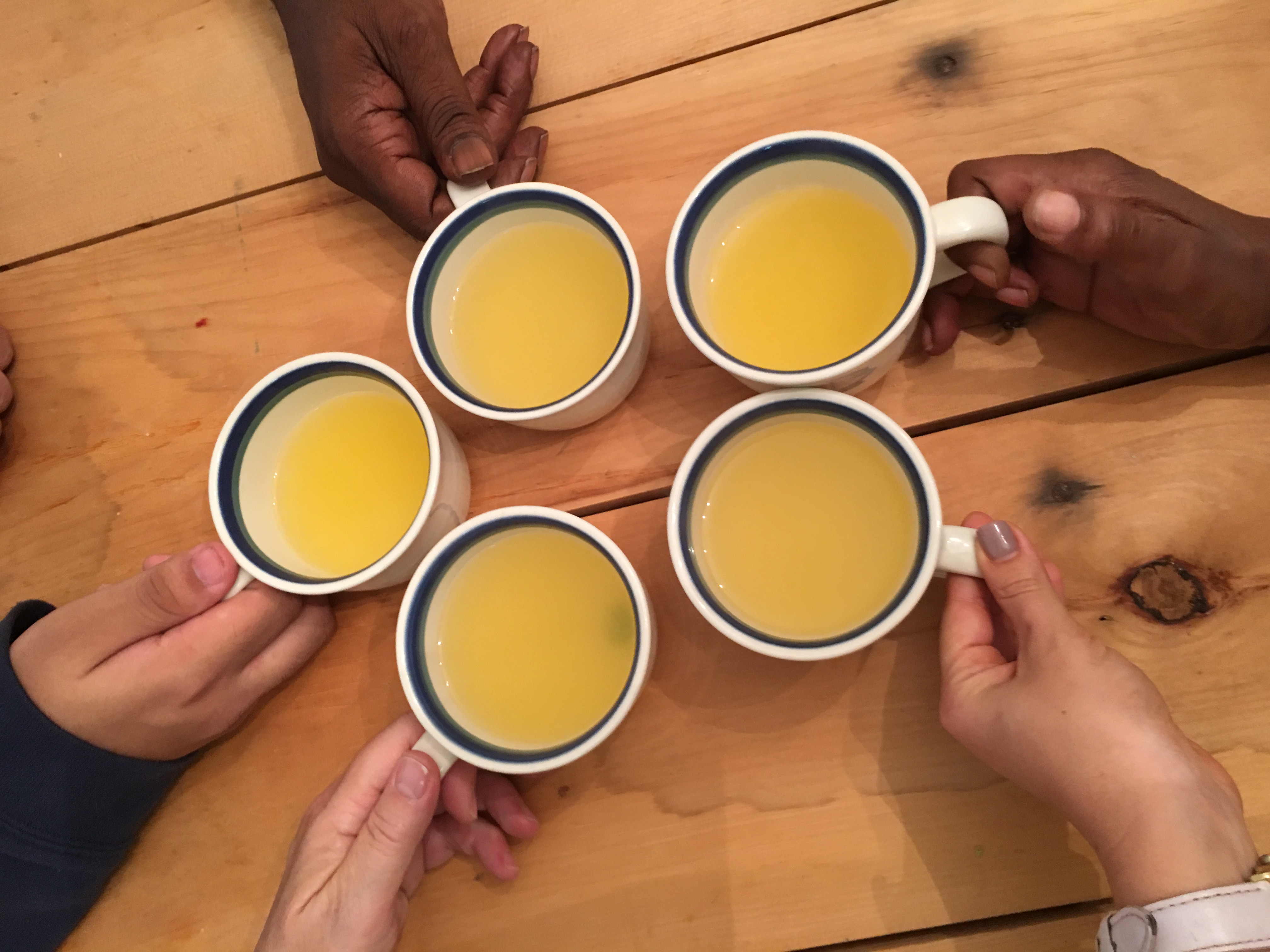

While it is not a typical Supper Club, the weekly gathering provides an opportunity for clients of the Wake ACT (Assertive Community Treatment) Team to socialize with each other and the ACT team. Together, they plan, prepare and share a meal on Thursday evenings at a nearby respite house in Raleigh, using, in part, farm-fresh, organic produce from the Center’s Farm at Penny Lane in Pittsboro.
ACT clients, who have serious mental illness and are unable to go to a clinic for care, have 24/7 access to intensive treatment in their homes or community. While they also have access to fresh vegetables via the Center’s Farm at Penny Lane in Pittsboro, many do not have the skills to plan a meal or prepare vegetables.
Each week at the Supper Club, seven to eight clients learn about healthy nutrition, pick-up some basic cooking and meal prep skills and assist in preparing the meal at their own pace.
“We encourage our clients to prep and cook with us each week,” says Evette Clement, RN, a nurse on the Wake ACT Team, who has taken the lead in organizing the Supper Club. “Sometimes it is as simple as shelling the peas, browning the meats, stirring the pots, or watching the quiches set up in the oven.”
“Like any kitchen, when meals are prepared, it becomes the ‘hub’ of the home, and the clients continue to rotate through during the preparation of the meal.”
“The most amazing piece of this club is to see the client’s interactions with one another and with staff in a relaxed non-clinical setting,” continues Clement.
“Evette, along with her awesome sous chefs, Kelly, Jeff, Tamara, and our clients have prepared amazing dishes using the items from the Farm,” says Emily Clark, LCSW, LCAS, CCS, team lead for the Wake ACT Team.
The weekly dinner menu has changed from a formal-type dinner, including herb tea from the Farm, to a more casual meal with favorites such as lasagna as well as turkey and vegetable and gumbo soups, and salads.
The menus depend on the growing season and the availability of vegetables from the Farm. Clement and her colleagues work closely with Michelle Morehouse, the program manager at the Farm, for menu planning.
While summer crops bring a plethora of salad greens, snap beans, green peas, and tomatoes, the fall and winter garden produces vegetables such as collards and root vegetables, turnips and potatoes. Roasting vegetables has been a popular way to prepare them.
Clement and her colleagues share the weekly recipes with clients and encourage them to prepare nutritional meals at home, and they have a plan for future use too.
“We record the recipes we have used with the produce from the Farm to develop a cookbook with photos at the end of this journey.”
Other staff: Tamara Wilson, LCSW, LCASA (Substance Use Specialist)
Jeff Neer, LCSWA, LCASA, CPSS (Peer Support Specialist)
Kelly Nelson, LPC, LCASA, CRC (Therapist)
